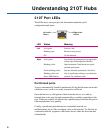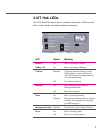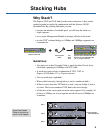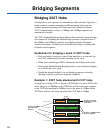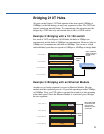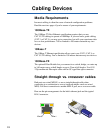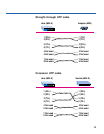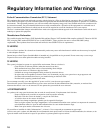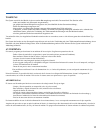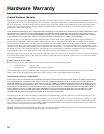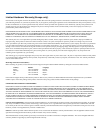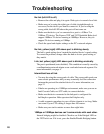
14
Can I stack Intel Express 220T Stackable Hubs with Intel
Express 210T Stackable Hubs or Intel Express 10/100 Stackable
Hubs?
Yes. These hubs use the same Intel Cascade Cable and connectors.
Can I stack Intel Express 220T or 210T Stackable Hubs with Intel
Express 100Base-TX Stackable Hubs?
No. The hubs use a different Cascade Cable and connectors. However,
both are 100Base-TX compliant and can exist in the same network.
How do I get devices running at 10Mbps to talk to devices
running at 100Mbps?
The 220T hub’s internal bridge allows 10Mbps and 100Mbps segments
to communicate with each other. By default the 220T’s internal bridge is
active. If the segments aren’t communicating, press the Enable/Disable
Bridging button on the front panel to toggle the feature.
The 210T hubs operate at either 10Mbps or 100Mbps and can exist in the
same stack. However, the hubs operating at 10Mbps and the hubs
operating at 100Mbps are on separate network segments. To enable the
segments to communicate, add a 220T hub to the stack or use another
device to bridge the segments, such as a switch or an optional Ethernet
Module. See pages 10-11 for more information
Can I set the speed on individual ports?
On the 220T hub all ports are autosensing and operate at either 10Mbps
or 100Mbps, depending on the speed of the attached device. To force port
speed on the 220T, you must purchase the optional Management Module
(EE200MM).
On the 210T hub, all ports operate at the same speed (10Mbps or
100Mbps). Individual port speed cannot be set.
Can I configure a full-duplex link from the 220T or 210T hubs to
another device?
Not directly, because the ports on the 220T and 210T hubs are capable of
only half-duplex. However, you can configure a full-duplex link through
the optional Ethernet Module or Fiber Module. The external ports on
these modules are switched ports and are capable of full-duplex.
Frequently Asked Questions



